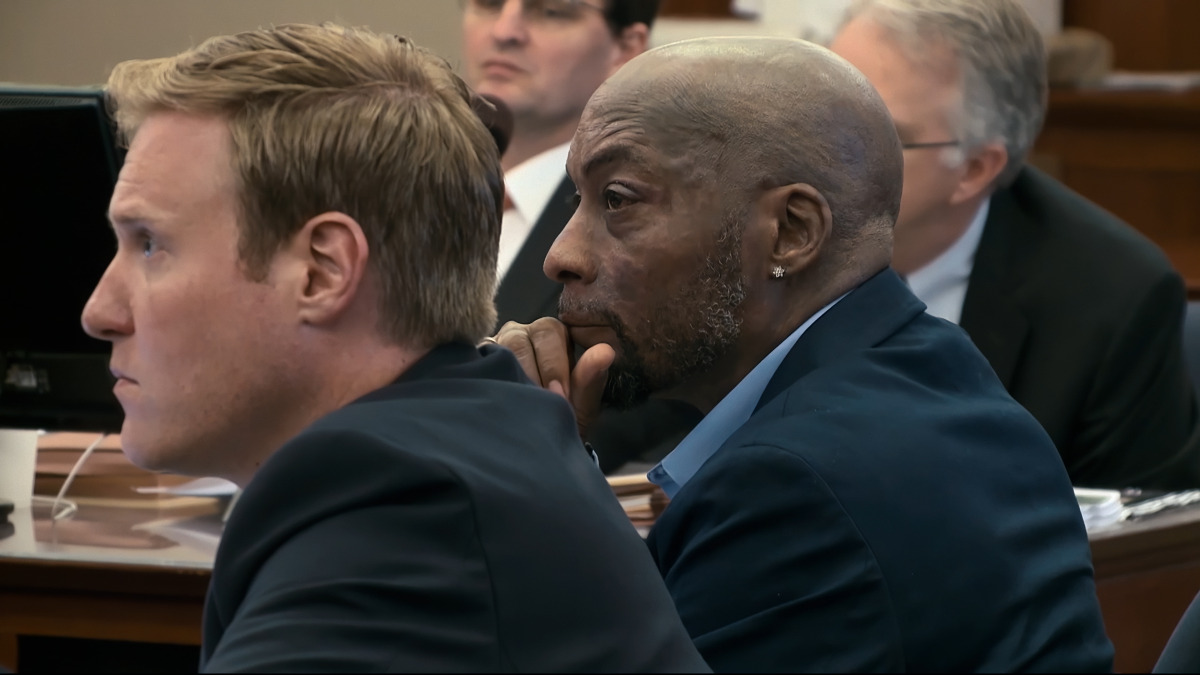Into the Weeds: Dewayne ‘Lee’ Johnson vs. Monsanto Company
(Canada, 96 min.)
Dir. Jennifer Baichwal
How do you get an audience to love a green film? It’s a huge question for anyone who wants to make a doc about the environment. While most people pay lip service to the cause, wanting to protect the planet and paying to see a movie about it, are two very different things. The common wisdom—or should I call it prejudice–is that a film focused on the environment won’t be fun and if you couple that narrative approach with an attack on corporations, you may lose even more ticket sales. So, what do you do?
If you’re Jennifer Baichwal, a Planet in Focus Environmental Film Festival Eco-hero recipient and the co-director of films with Nick de Pencier and globally recognized photographer Ed Burtynsky, who espouses the same green sentiments, the question of audience engagement is not academic. What strategies can be employed to turn a worthwhile film into one that people actually want to see?
For Into the Weeds, Baichwal has come up with a brilliant plan for engaging audiences. She’s made a courtroom drama and who doesn’t love those? People want to see To Kill a Mockingbird on stage as well as screen and let’s face it, a happy story it is not. Think of some of your favourites: Kramer vs. Kramer, Inherit the Wind, 12 Angry Men, Michael Clayton, Erin Brockovich. Happy? Didn’t people flock to those?
While Into the Weeds won’t threaten those box office revenues, it’s reasonable to assume that more people will come to see a film about an underdog taking on a corporation than most environmental films. Let’s hope that’s the case because this is a film well worth seeing. Baichwal’s feature is about a lot of things: the exploitation of workers—farmers and factory labourers; the deliberate misuse of consequential information by companies that knew better; the heartbreakingly sincere tales of agricultural and urban working people whose best efforts were subverted by profit making institutions that literally couldn’t care whether they live or die and, of course, racism, which underlies most everything that occurs in our present-day political economy.
Like many courtroom dramas, Into the Weeds is a compelling and very relatable narrative. Baichwal introduces us to Dewayne ‘Lee’ Johnson, an African American who was born to make music but needed to make money since he had to provide for his wife, two children, and delightful mother DeLois. In order to make ends meet, Johnson began to work for Monsanto, a company with a problematic past. All went well until a traffic accident involving his vehicle created spillage in Johnson’s delivery truck, forcing him to plunge into the liquid called Ranger Pro in order to stop the flow before it could affect the kids in a grade school.
Johnson’s heroic gesture will probably kill him. He’s been diagnosed with Non-Hodgkin’s lymphoma, an aggressive cancer that causes death in 72% of its recipients within five years. It is clear that “Lee” was affected by a non-selective herbicide, a glyphosate, which eliminates weeds and, it turns out, much more, including human lives. The product he was dealing with, Ranger Pro, is derived from Roundup, which Monsanto has successfully marketed to farmers all across North America.
Roundup kills weeds. No doubt about it. It may kill other things, too, including farmers. Into the Weeds toggles back and forth from Lee Johnson’s story to those who have been affected by contact with the glyphosate, including Canadian prairies farmers Gary Gadd and Richard Elenko, both of whom have been diagnosed with the same cancer as Lee Johnson, but continue to use Roundup because it makes crop growing so much easier. Such is the price people will pay to keep their businesses and feed people.
Who created this Faustian bargain? As the immensely influential film The Corporation established almost two decades ago, no one person is to blame. You can call a corporation a psychopath as that doc did, and it’s clear that profit motivate institutions, as well as people, now as it did then. If you’d like, you can blame Monsanto—and, in fact, I do. It’s now been revealed in a series of documents called “The Monsanto Papers” that the company had employed scientists to test out the effects of the herbicide in Roundup and concluded that cancer would result after long or close contact with it. Of course, Monsanto didn’t reveal the results of their studies, until they were forced to do so.
Into the Weeds is a complex story, involving the fate of human beings like Lee Johnson, Gary Gadd and Richard Elenko, the responsibilities of huge corporations, extremely problematic herbicides, the future of agriculture, and the necessity of being transparent with each other. The courtroom drama spells this out and one must give kudos to such lawyers as Brent Wisner, Michael J. Miller and Robin Greenwald for establishing the truth at Johnson’s trial.
Baichwal’s film makes it clear that Lee Johnson’s case was a mass tort, a lawsuit that involves many plaintiffs. A finding in favour of Johnson would affect numerous cases because it would establish a legal precedent. So, a win for Lee Johnson in the millions of dollars wouldn’t just help him and his family; it would aid countless others involved in other court cases and ultimately change the practices of the corporation itself.
In the end, Baichwal’s compulsively watchable doc does offer us a winner in a trial. But the situation remains alive. Monsanto has been bought by Bayer, an even larger corporation, once famous for its aspirin. Monsanto, in its day, was known for “Agent Orange,” the defoliant, which affected three million people during the Vietnam War, causing severe birth defects in over 150 thousand Vietnamese children. Its final act as a corporation was losing millions in legal cases for its use of Roundup. Was Monsanto an ethical institution?
Into the Weeds is a wonderfully well-made film involving a complex yet important story. Hey—it’s a courtroom drama. You’ll enjoy seeing it.
Into the Weeds opens in theatres on May 20.














